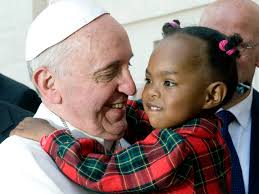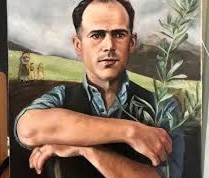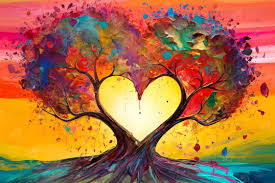Fourth Sunday of Advent
“Mary: The Most Powerful Woman in the World”
These are not the words of some Catholic newspaper, or some otherwise strongly religious publication. They are instead the title of the lead article, along with a cover picture of Mary, found in the December, 2015 issue of National Geographic magazine!
Stunning!
The article is written by Maureen Orth, a journalist who spent three years traveling throughout the world trying to understand more fully why Mary, the mother of Jesus, is so crucially important to millions of people.
Here are a few of Maureen’s words: “Mary is everywhere: Marigolds are named for her. Hail Mary passes save football games. The image in Mexico of Our Lady of Guadalupe is one of the most reproduced female likenesses ever. Mary draws millions each year to shrines such as Fatima, in Portugal, and Knock, in Ireland, sustaining religious tourism estimated to be worth billions of dollars a year and providing thousands of jobs. She inspired the creation of many great works of art and architecture (Michelangelo’s “Pieta,” Notre Dame Cathedral), as well as the spiritual confidante of billions of people, no matter how isolated or forgotten.”
All of this begs the question: What was it about this young girl that attracted and enticed, not only Joseph in today’s Gospel story, but even God – a God so enamored that an angel was sent to deliver the most revolutionary message ever?
I’d like to suggest two possible answers to this question, with the reservation that there are surely a number of others.
First, she wasn’t a preacher. She wasn’t an evangelist. She wasn’t an activist. Instead, Mary was a listener who embraced simplicity. She was one who paid attention, who reflected, who meditated. All those Advent qualities.
She chose to perhaps be among the first to embrace the message later adopted by Francis of Assisi: “Preach the Gospel at all times, and when necessary, use words.”
Present. Open. Available. Receptive. Quiet. That’s the kind of person Mary was. And it was likely that collection of gifts that most enticed God, and Joseph, and so many people down through the centuries.
But I would like to suggest another major gift of Mary’s personality – her life experience that has been repeated continuously by millions of people even to this day: Mary and Joseph’s journey to Bethlehem due to a census that is now being mirrored by countless numbers of people displaced from their ancestral homes; Mary and Joseph’s flight into Egypt to avoid the death threats of the tyrannical King Herod, just as today millions of refugees are doing the same; Mary’s loss of her child by an unjust state execution now paralleled by the disappearance and murder of beloved children under dictatorial regimes – the Herod’s of today.
Women, in particular, possibly find in Mary a sister to the lives of marginalized women in oppressive situations throughout the world – women who are without food, without clean drinking water, without housing, without education, without healthcare, without employment, without security from rape, without human rights.
To all of them, Mary stands up on their behalf and speaks words of hope to the neediest – such as these choice words from her great prayer, the Magnificat:
“ … O my God, … You have shown strength with your arm … You have put down the mighty from their thrones, and lifted up the lowly.”
To this very day, Mary is ultimately seen as the “God bearer.” She is the heart of the Gospel. She is the one who forces each of us to look at ourselves spiritually.
When asked what Mary meant to him, Pope Francis answered with one word, “She is my mama.”
May our “mama,” the one who is “blessed … among women,” assist each of us in birthing anew the Child that falls from heaven into our arms … our hearts … our souls.
“Mary: The Most Powerful Woman in the World.”






